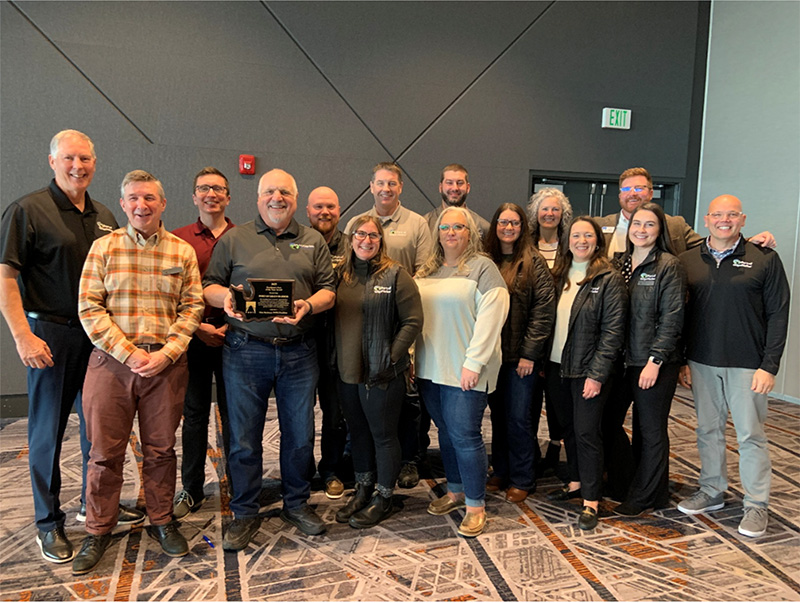By Tim Schermetzler of CSD Attorneys at Law P.S.
In April, the Washington Court of Appeals issued a decision in West v. Walla Walla City Council 1, a case involving an alleged violation of the Open Public Meetings Act (“OPMA”). In that case,a citizen brought an action against the city council and its council members alleging the council took action during a closed executive session and acted contrary to the special meeting notice. Given this recent case, I thought this month’s column would be a good opportunity to discuss the facts of that case and the Court’s decision as a reminder of the rules and limitations for port commissions in executive sessions and special meetings. Before I get into the overview of the case, it’s helpful to discuss generally the reasons for open government laws such as the OPMA. Open government laws can be a source of frustration at times because of significant time staff spend navigating the maze of procedural rules and documenting compliance. However, open government laws, such as the OPMA and the Public Records Act (“PRA”) are important laws rooted in the principles of transparency, participation, and accountability and are core tenets of our system of government. These laws aim to foster public trust in government. The OPMA’s stated purpose is that governments’ “actions be taken openly and that their deliberations be conducted openly.” 2 This is built on the premise that the government exists based on the consent of the governed (i.e., the people), which is also acknowledged in the legislative declaration for the OPMA: The people of this state do not yield their sovereignty to the agencies which serve them. The people, in delegating authority, do not give their public servants the right to decide what is good for the people to know and what is not good for them to know. The people insist on remaining informed and informing the people's public servants of their views so that they may retain control over the instruments they have created. 3 There are open government laws at both the federal and state levels. While these open government laws rest on the same principles, not all of these laws include the same procedural or substantive requirements. For example, in Oregon, minutes or a record of an executive session must be taken. 4 Currently, in Washington there is no such requirement for taking minutes or making a record of discussions in executive session. When government entities act contrary to open government laws, the public often pressures the legislature to add procedural or substantive requirements to open government laws to curtail violations or abuses. Complying with open government laws, and thereby maintaining the public’s trust in government, can protect against pushes for more restrictive and administratively burdensome laws in the future.
Reminders and Recommendations:
- Don’t take Final Action in Executive Session. Final action, a collective positive or negative decision or vote, must not occur in executive session, and must be done only in open session. If following an executive session discussion, the commission will take up an issue for a final action or vote, it is advisable to create a record in open session outlining the factors going into the decision. However, in making that record, avoid any statements that refer back to executive session to support a final action.
- Avoid misleading statements. Commissioners should not make statements coming out of executive session that suggest a decision has been reached. Avoid statements such as “we have concluded” or “reached consensus” or the like when coming out of executive session prior to taking a vote in open session. These statements could be construed by a member of the public as an indication that the decision has been made, even when that is not the case.
- Craft special meeting notices with care.Avoid notices that box the commission into a vote on a specific action. The agenda item/notice of special meeting should be sufficiently descriptive to provide meaningful notice of the matter under consideration (i.e., “the business to be transacted”), but does not have to state with precision the action that may be taken. In the City of Walla Walla case, a special meeting notice that indicated the city council would “consider action related to appointment of city manager” or “consider action for process to appoint city manager” may have provided more flexibility to the council in that case.
- People are watching.Any person can bring suit for civil penalties, attorneys’ fees and costs, mandamus (order to perform a duty), or injunctive relief. In the City of Walla Walla case, the citizens who wrote an op-ed in the paper and wrote to the city were not the same as the person who brought the lawsuit against the city, but the persons who wrote the op-ed may have teed up the lawsuit. Of course, compliance is important for the reasons stated above whether we think someone is watching closely or not.
- Commissioners can be personally liable.RCW 42.30.120 provides that a member of a governing body who knowingly violates the OPMA is personally liable for a civil penalty in the amount of $500 for the first violation, and $1,000 for any subsequent violation, along with attorneys’ fees and costs incurred by the member of the public bringing the lawsuit.
- Trainings.RCW 42.30.205 requires that every member of governing bodies of public agencies complete training on the requirements of the OPMA within 90 days of assuming his or her duties and a refresher training course every four years thereafter. This is the minimum training required, it is a best practice to review the requirements of the OPMA and other open government and ethics laws annually.
If you have a question for Knowing the Waters, please e-mail me at tschermetzler@csdlaw.com.



